Interview: The Oranges Band (w/ Roman Kuebler) [Part 1]
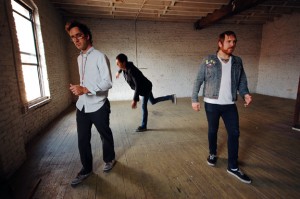
Photo credits: Natasha Tylea (1-3), Greg Szeto (4-5)
The Oranges Band were the first group that got me to start poking around the music scene here in Charm City. The World and Everything In It still ranks among my favorite albums from a Baltimore band; to this day, I can throw it on and get taken in by songs like “Drug City” and “Open Air.”
Needless to say, I was pretty excited when I checked the Ottobar calendar some weeks back and saw the guys were doing a 10 Year Anniversary show on April 24. To mark the occasion, I sat down for an expansive, career-spanning interview in the band room at the Ottobar with lead singer Roman Kuebler. We covered everything from the life of a band on the road, to each of the three albums the band has released, to Roman’s thoughts on the current Baltimore scene, and lots in between.
For me, it was both a history lesson (sometimes that is painfully clear) and a chance to really pick the brain of one of the founders of a band that opened my eyes and ears to wonderful music around me.
Aural States: So your first show was here 1o years ago. Describe that experience. How did that go?
Roman Kuebler: Well, first of all, it was in the old place. The Ottobar used to be– it originated where the Talking Head… Did you ever go the Talking Head when it was on Davis Street?
AS: No, I think that was before my time. But you ran that for a period, right?
RK: Mmm-hmm. Well, the Ottobar started out there. And they had been there for a few years. I was close with the owners and have been ever since. And so it was [pauses] it was really a cool, first show to have because the bill was really sick. Les Savy Fav and Enon and Love is Laughter, they were touring together, and then we headlined. And, you know, at the time everyone was small there. We couldn’t sell out anything. There was probably a hundred people there or something. But it was really a good time. Even though, you know, we were probably not that good.
I was in a different band, essentially, too. Me and Dave (Voyles), the drummer, were just saying we had a different bass player (Michael Boarman) and then we had a keyboard player (Lauren Madow), which was odd. We never did that again. We did that for two shows.
After that we went on tour. That [first show] was in March. It was March 25, 2000. We went on tour, I think in June or July.
AS: Yeah, you guys have had a lot of lineup changes over the years. Is that just something that comes with being a local band?
RK: Not necessarily. When I set the band up, I kind of assumed that it would be a lot of people kind of coming in and out. But it really wasn’t. It’s weird, because we haven’t had that many lineup changes. We had the same four people from our third show– it was our third show on tour, in St. Louis –so we had our core four all the way through 2006.
Oh, no that’s not true. Tim (Johnston) left in 2005, the bass player, and we got a new bass player (Faye Malarkey). But, in that time also, we added an extra guitar player (Virat Shukla), so we had this extra guitar player through 2003-4, something like that. So we traveled as a five-piece for a long time.
And then we went back down to a four-piece, the normal four-piece– same people. Then Tim, our bass player, left after that tour in 2006, and we had a new bass player. And then that’s when things started, like, really turning over. And then that bass player didn’t really work out, and so she left and then the guitar player left at the same time. And then we had to get a new bass player, number three (Pat Martin).
You know, then that’s when Doug Gillard (guitar) played on our record and played with us for a month. By now it feels like there’s been a lot more.
But there was a real long time that it felt like we were just the same thing, the same people. And that was the bulk of our touring and the bulk of our activity.
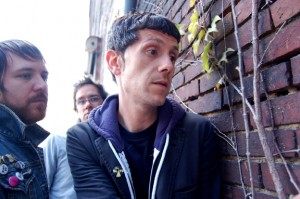 AS: I read an older interview, I think it was 2005, where you said that– you were talking about how kind of hard it is to be a band in Baltimore, how you get passed over for attention and all these bands, you know, in LA and New York have agents and lawyers already. I kind of feel like the opposite is true, just that the scene is getting so much attention now. Talk about, like, how you’ve seen it change in the 10 years of the band’s existence and how you feel it’s received elsewhere.
AS: I read an older interview, I think it was 2005, where you said that– you were talking about how kind of hard it is to be a band in Baltimore, how you get passed over for attention and all these bands, you know, in LA and New York have agents and lawyers already. I kind of feel like the opposite is true, just that the scene is getting so much attention now. Talk about, like, how you’ve seen it change in the 10 years of the band’s existence and how you feel it’s received elsewhere.
RK: You mean just the Baltimore scene?
AS: Yeah– well, or even just an individual basis.
RK: Doing the Talking Head was [pause], you know I had a lot of access to what was going on, you know, kind of those smaller bands and stuff like that. And, honestly, I didn’t feel like it changed for a really long time, even as the styles were changing and the people were changing.
Either the Baltimore tendency, as far as I can tell, is, you know– the fan base, they’ll be with you for awhile, and then they’ll start to kind of fall off. As you’re around for awhile and haven’t made grand moves, you know– and that’s probably true just about anywhere –the fan base gets a little bit bored. So they’re looking for something new.
What’s different now is that those bands were then able to kind of build on that support and use it to succeed elsewhere, and sure, then grab the attention that they could from other places. Then once there was this idea that there were these things happening in Baltimore, and that the fan base remained supportive of some of these groups, that’s when the national exposure starts happening.
And then, well that’s when, you know, it just kind of rolls over and rolls over. But by the time that had all happened, we were long gone, you know? I mean it was just, that’s a younger crowd, you know?
AS: Yeah.
RK: So, I just feel like as it relates to The Oranges Band… or it doesn’t relate at all to The Oranges Band in a sense. We just weren’t able to access that. We have always done well locally, and that has something to do with the fact that we’ve always been active, always trying to progress– and not just progress musically but, you know, try and advance our careers just, like, playing with different groups. We’ve always been kind of successful with that, but it never turned over for us in the sense that that kind of local support didn’t continue to build and build. It kind of plateaued, and then we also had a lot of trouble with our label, so then our national profile kind of stopped.
And once that stopped, that’s when everything– that’s when we lost our members and that’s when things started… It took us kind of a long time to get back from that.
And yeah, we still see a lot of support around here, especially from places like TMD, who weren’t even around for our first five years, really.
AS: I feel like a lot of it now is, like, hype and buzz, and I guess, you know, a blog, like the one I write for, is now all the sudden– that drives a lot of what happens. Do you feel like maybe if you had started later, or if the band had started in another time and place, that things would have been different?
RK: Well, it’s hard to say. Every band’s got a story. I’m sure there’s plenty of good bands who are– I mean, I know of plenty of good bands who are being ignored right now. So no, I don’t believe that that’s true, because there’s a certain amount of just [pause] It’s not misfortune, it’s not bad karma. I’ve felt for a long time there’s only so great that we’re ever gonna be. You know at the time we were touring with bands that we loved, big bands, playing in front of lots and lots of people. And it wasn’t really turning over for us that much, you know? And maybe backed from a different label, then who knows? But I don’t know, I mean there could have been any number of scenarios that would have resulted in us doing better, but I really don’t know. I just feel like we are who we are, and that’s not a bad thing. We still do reasonably well. We’re pretty well respected, as far as I can tell.
AS: The World and Everything In It– I guess, as my earlier knowledge of the Ottobar location showed, I got into the scene kind of late –that was definitely the first record from Baltimore that I fell in love with.
RK: Really?
AS: Yeah.
RK: Oh, well thank you.
AS: It’s awesome, and I think you guys just have always been able to write great hooks, I feel like. You guys have always written great pop songs, and I feel like that sort of transcends, I don’t know.
RK: Well that was a big step for us, that album. The album before I feel like we had good songs and we performed them fairly well, but we didn’t know how to manipulate the studio and we were working with people who we didn’t know that well, and they didn’t know us. So I felt like we left a little bit behind.
I was just kind of learning how to manage the songs and manage all of the stuff. And so when it came time to do The World and Everything In It, I decided that, since All Around hadn’t perform that well, didn’t get us to the spot where I wanted us to be in, I said: “Well, this one’s gonna do it and then some. I’m gonna really work hard on this record.” And I really did. And I’m really proud of the result, but it took everything I had to do that much.
Then I thought it was really good. I felt like it had a real good chance to do well. Then a month after it came out the record label folded. And that was it, it was over. There were no tours after that. It was really disappointing, you know, because I felt like “Shit, now we have the material, but we don’t have the support.” Whereas before we had a record that was good, but maybe not as good. If it were better [pause]
Anyway, that just kind of goes with the territory of upset, you know? I don’t know.
AS: Did you ever try to shop it around to another label for a re-release? Or I guess it’s their rights…
RK: They were our rights, and we did try a little bit. We almost got a couple bites, but we never did.
I don’t know, Lookout, they might have made it difficult, but we never got into it, you know? We never had that, like– You know, right after it came out, you know what? Really it would have been nice if they had said, “Listen, we’re gonna close down in a few months. We want you to see what you can do with this record.”
But I don’t blame anyone. Everyone was trying to do the best that they could do, and none of us were succeeding [laughs].
Hopefully in time– you know, there were just a ton of good records on Lookout at that point in time. And they were all being pretty well ignored. Hopefully in time someone will kind of put that music together and say, “This here on Lookout, there are these five records, and four of them were really good. And, you know, no one really knows about them.”
And a lot of these bands didn’t survive that.
AS: How did you manage to keep soldiering on after something like that?
RK: I think just because I was really stubborn. I was like, “You can’t– That’s not gonna stop me.” Something about… In fact, I got a little too proud even, um [pause] about it to the point where I think I got a little bit of tunnel vision in the sense that, when Tim left the band– Tim is and always was one of my closest friends –and when he left the band I thought, You know, I understand, he was getting married, he was planning for a family and getting work.
And so I think he thought it was over a little bit, and everybody was, like, cool, you know? It was all good. But I think I took it to be a little bit like, um [pause] Oh well. I’ll get someone else and we’ll just keep going, which I did. I got someone else and it was kind of disastrous. It didn’t work out that well. The personalities weren’t right. The music wasn’t right. And at the time I was so focused on moving forward that I think I didn’t concentrate enough on stabilizing what was there to begin with. I think it kind of– After that then we were losing more people, and then we really had some ground to make up until we really set ourselves back. Which is why it took eventually four years to make an album. We were replacing people for two of them and then practicing, booking and recording for another two, or whatever– or no, it was one, and then six months to kind of get it out officially. We had it done in probably late summer 2008, but it didn’t come out until March of 2009. I was trying to get someone to put it out, but not very hard. It was just like, We just gotta put it out. I was just so kind of headstrong about, like, [pause] you know, this album’s gotta drop, and I don’t care–
And sometimes that’s the way I am, and sometimes that’s really good because our first tour was exactly like that. “I’m going on tour and I don’t care if someone tells me I can’t go.” You know?
AS: Yeah.
RK: “I don’t care we don’t have an album. I don’t care this band has never played together. I don’t care if you go or if you don’t go. Like, I’m going on tour, the band is welcome to come along.” That was the attitude.
At first it really gelled really well in that way, ’cause it’s just really loose. It was really cool. Later, it didn’t last as well, but it is what it is.
AS: What was that first tour like? I mean, you’re sort of talking about how it gelled, but I believe one of your EPs was called Nine Hundred Miles of...
RK: Of Fucking Hell.
AS: So I imagine you didn’t care much for the time in between shows.
RK: No, that was the second tour.
The first tour was really great. You know, we didn’t have a hell of a lot of shows. I had never been to California. I had never toured in California at that point. I was in a band before then that kind of, that was the breaking point for that band was that we couldn’t get it together to do a real, full tour of the United States. All the guys just wanted to wait, and I was like [in a voice] “I’m not waiting, I’m just going. I’m gonna start a new band and I’m going to California.” Which is what we did.
We were just playing all these shows, it was really loose. But, we were doing okay, we were making a decent amount of money, and just using our connections. We nearly broke even that tour, which is really unusual. And everyone had a good time. We would have three days off in a row and just, we did a lot of skateboarding and camping and swimming, and we did all kinds of stuff.
AS: Sounds like fun.
RK: Yeah, it was rad.
The second tour we kind of thought, More of the same, you know? Let’s just go out and do it again. And we did it, but then we started having van problems. We were skateboarding and our bassist broke his ankle. He flew home. We carried on as a three-piece for half of the tour. Our van broke down and then it broke down again when it was raining. Just one after the other. Catastrophe after catastrophe. The transmission went up, it cost me a couple thousand dollars. It was just problem after problem.
AS: One thing after the other. Murphy’s Law.
RK: So… that was the second tour.
Then after that tour– The thing that was good about that tour was we came home from that tour saying, We thought we were pretty good, as a group, you know? We were playing really good, we were loud and rockin’. We thought, Now we just need some help. Let’s get some help to, you know, get a label, get management in, really have a go at it. And that’s what happened, so.
AS: How did that all come together?
RK: I think it was just mining contacts, really. I was shopping what was eventually On TV. We had a whole album, and I was just sending it around to different labels. And at the time I was playing in Spoon, which gave me a little bit of cred, you know? They weren’t nothing like they are now, but they were kind of rising stars at the time. So people, I think, were impressed to give us a little bit of a listen. And so all these people were asking, and we’re like, “Yeah, we’re good, we’re good.”
It was really nice at the time. Lookout was really into it, you know, they were really energetic about it. They were one of the two bigger labels, and they were the most energetic about it. “Aw, we’re gonna do this, we’re gonna do this. We’re gonna work out– Here’s your deal.” And they gave us more money than anyone else, and at the time we needed it because we had spent X amount of dollars making our album, and we wanted to get it back. And we wanted to do some other recording also. So, that’s kind of how it all worked out.
And for awhile there it was just like that, they were really supportive and really energetic.
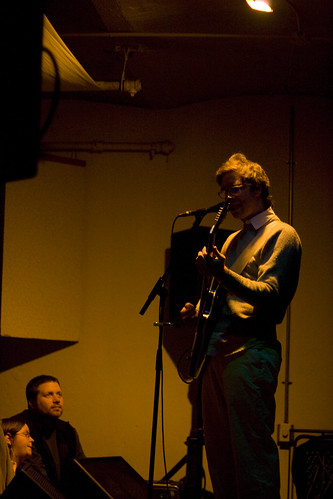 AS: How soon after that did you put out All Around?
AS: How soon after that did you put out All Around?
RK: I think September 2003 or something. I can’t remember, to be honest with you. Maybe it was earlier than that. I think the EP came out in the fall. The thing was, when we got signed we had this two week tour still coming up, and we wanted to have a new release for it. So we came up with the EP. That’s why we did the EP, ’cause I don’t think we had time to do an album. We’ll do an EP, then we’ll do an album in the spring. So that’s what we did. I think was 2002-03 maybe? Probably?
AS: It doesn’t seem like that long ago, does it?
RK: [Laughs] I don’t know, it kind of does. It kind of does seem like a long time ago. I mean, that was before we had really gotten into touring [for] months. We wanted to do that. But that is a like a pre- and a post-, you know? A pre- a during and a post-. Like, pre-touring band was like– and we were touring a bit, quite a lot –but when we got thehelp [of] the agency, of the label, stuff like that, it was like, Now it gets real. And then we really went for it.
Like it was one-year stretch we toured six months out of the year or something. We were just really good at trying to get on tours and trying to do whatever we could.
AS: What’s that like, though, life on the road?
RK: It’s wild. It’s like everybody thinks it’s this one thing, you know, but aside from the hour that you play or set some of your stuff, and the hour before and after the show, the 21 more hours in the day are what you’ve gotta deal with. And that’s the stuff that’s interesting. The show is generally, like, you get up you try to do the same thing every night. You try to play the same show, just play well. Try to make yourself sound the same and be consistent. So there’s really no variation in the show; it’s everything else, though, that’s kind of changing. And everyday is different: you wake up in a different place, you don’t have food, you don’t know where you’re sleeping. You just get used to it. But, you know, we all got along pretty well and just had a blast all the time.
But we’d be on the road… We did two different 10-week tours. When you’re on the road for 10 weeks in a row, it’s impossible to describe just what it’s like. You forget what happened two weeks ago. Or it’s like when you think about, like, “God, you realize two weeks ago we were in Vermont? I can’t believe that was two weeks ago. That feels like two years ago.” And you just adapt to this thing. And then, you’re halfway through and you’ve been on tour for five weeks.
It was just really, I felt like it was impressive, even at the time we were doing it. Like, to ourselves. We impressed ourselves to some extent, like, Well no one can say we didn’t do this. No one can say we didn’t really go for it.
It was really fun. Really fun. We weren’t good. We were just shit-kickers for fun. Scrounging. Staying wherever we could stay. Hopefully making enough to kind of get along. By then I think we were kind of just barely breaking even on the whole tour.
And you came home, you were just broke. It’s the stereotype: “Oh, I’m broke. I can’t pay my rent.” All that stuff. “I’ll sleep on my buddy’s couch. I can’t afford a place to live [laughs]. Hopefully I can come up with some work before we go out again.” It was really fun.
AS: What kind of odd jobs did you work when you weren’t touring?
RK: Well, I’ve always done freelance design work. And then we found this job making architectural models. That was a really cool temporary job to get. Me and Virat did that. My buddy was refurbishing his house, and we’d go and work with him. He’d pay us 10 bucks an hour, because it was us or some people he didn’t know. We’d haul bricks around. Whatever. He also wrapped boats. So we’d go and we’d wrap boats. This is Dave and I who were coming up with that sort of stuff, the more physical stuff.
The club was happening, so we’d get home and work on the club, maybe do some work at the club, The Talking Head. But I didn’t really work there very much because I had to leave all the time.
AS: How did you ever manage both? To run that, and to be a part of that, and then to go be gone for an extended stretch?
RK: I didn’t, really. I really wasn’t that involved in The Talking Head. I booked it for a long time. And I would book it from the road, and that was not an ideal situation because I wasn’t there to kind of manage it. You know for a long time [pauses] some of the problems could probably be attributed to the fact that there wasn’t just real consistency throughout there, you know? It also stems from the fact that it was like this kind of self-fulfilling thing, where no consistency means you’re not getting crowds, means you don’t get the money, means you have to do something else, means you can’t be working consistently, means, you can’t, you know.
AS: Yeah.
RK: Everyone who worked there was just kind of scrambling just as well. Just this time… Everything was building, just hanging on a thread. So we just did whatever we could.
AS: So when did it, or did it ever get to the point where those tours started coming back more in the black and you guys were able to live more comfortably.
RK: [Laughs] No, never happened.
AS: Through the whole ten year span, what are some of the highlights then for you?
RK: Well the first tour was certainly a highlight, because it felt like– it felt like we really did something. Like we pulled something off there.
And then the Lookout period was really great, just meeting all those people. And you know, we became really close with them. And it felt like we were really part of something there. So that was definitely a highlight.
The making of The World and Everything In It was a highlight for me in the sense that it was a creative highlight. I was really trying to do something special on that record. And I was working, just really hard at it. And I feel like it paid off.
AS: Yeah, it definitely did.
RK: I felt like this was the first time that I started to realize how much control I had over what I was able to do. Before that I was like, I’ll kind of take what comes. That’s lyrics, that’s songs, that’s recording. It felt like I had a certain amount of control, but not– there was a certain point where I was just like, “That’s what it is,” you know?
But that album, it was kind of like trying to not take no for an answer, or not let good enough be good enough, you know? And I hear a lot of places where I just ran out of steam. And there’s a lot of tracks that never got finished. But there are a few moments on that record where I’m just really proud. I feel like, you know, I really did that. I’m really happy about that.
And then working with Doug was also really great. And that last record, everything about that last record was pretty cool because, up until then, like I said, I was kind of controlling and trying to like manage everything, and that included what other people were playing.
But after making The World and Everything In It, I was really spent, just like exhausted, physically, emotionally, mentally– just really exhausted. We went right on tour, and it took me a long time to recover from making that, which is weird, because I’m not the fragile type, you know? But it really affected me in this way that was surprising.
So after that I was like, I just want to change things up a little bit, and then we had all the drama with people coming in and the people coming out. It was tumultuous and it was uglier at times. The transition was not as smooth. So getting through all that, and getting Pat in the band, who is really solid, really cool, nice guy, could play bass, settled us down a little bit. Dave and Pat and I got to work on new songs, and it wasn’t like “Do this, do this, do this.” It was like, “Let’s just see what happens here.” And everyone kind of contributed and those songs came out. I had the songs, I had the lyrics. Then Doug kind of added on top of our base, and he really just blew everything up, just made it all better. And so we just felt like, Shit, that’s the record that we need to make right there. So that was a real highlight, that whole working with Doug and putting that record together.
And understand, I could think and come up with a day, like, “This day was awesome. Went swimming in the Atlantic Ocean and then did this,” you know? Those are a little bit harder to do, because there are tons and tons of them and you think about all these travels and all these people that you’ve come across. We circled the country, I don’t know, I feel like eight times, eight-to-ten times.
It felt like we played in California probably as many times as we’ve ever played in Baltimore, and it just felt like, for all of those kinds of experiences, you could probably pick a few out and go: “Wow. Remember this?”
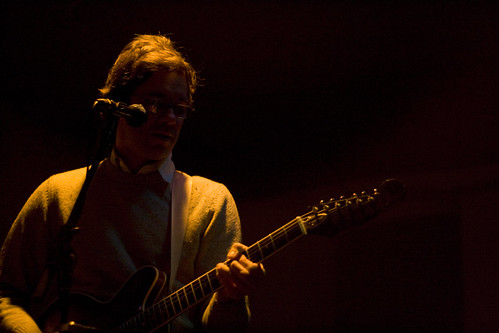 AS: Whether it be recording or just something when you were touring, which of those would you take with you forever?
AS: Whether it be recording or just something when you were touring, which of those would you take with you forever?
RK: I guess it’s just the experience of the road, being a group on the road. I think that that’s pretty much the legacy of the band, you know, it feels like the legacy of the band. And just that we kind of did what we wanted in that way. We said this is what we’re gonna do, and we did it. And at the time, you know, I think we really experienced it.
Which I don’t think everyone does necessarily. We did plenty of touring, but it was much different. It was [not] very regimented: hotels. “Go to the hotel and go to the club, and do this and do this.”
The Oranges Band was wild, man. Show up at the club and the doors are closed. We’ll screw around for two hours and come back. Just, chaos.
We just learned how to be really flexible. Everybody did. If you needed your time, you know how to get it. If you were pissed, you knew how to deal with it. And if you’re happy and things were good, it was a communal feeling. There were nights where we would sleep 6 or 8 people because we had people coming with us.
One night we slept 7 people in the van on the side of the street. It was just like, Yeah, none of this is crazy. No one is like, This is ridiculous. Everybody was up for it, you know? That’s how I’ll remember it.
AS: It sounds like that’s the way to do it.
RK: No, not necessarily. I wouldn’t be interested in doing it now. The thing is, is you do it and then it’s done. When you have to do it again and again in the same way… if you don’t progress– that’s the thing where I think that people in bands have a hard time continuing, is when there’s no progression to their work or to their popularity or success or, you know, their experience.
If our experience would be the same over and and over over again, eventually you’re just like, You’re over it. I’ve done this. I’ve done tours since then that have been like that, when I’m like, I’ve done this, you know? I’m over it.
AS: So what’s it like for you now? Or rather, what do you expect it to be now? Because you guys are getting started back up again, going on the road with The Hold Steady.
RK: Well it’s going to be a little bit more controlled, in the sense that now we are the ones who are gonna be going to hotels. The thing that’s great about this tour upcoming is that there’s very short distances. So I think that we’ll be able to concentrate our time to experience the places a little bit more, which is one of the things that we never really got a lot of. It wasn’t, like, in Atlanta we got to tour the Coke factory. We always wanted to do that. We just never did. It wasn’t like we got there at 1 o’clock and didn’t have to be at the club until 5, or something, you know? We got there at 7 and had to be at the club at 6:30. So it was like, run in, do your stuff, rushing, rushing, play, whatever. Everything goes crazy. Wake up that day at 8 in the morning and got our shit packed and left. Because we always like did these really long drives.
It’s probably going to be a little bit more laid back. But the thing that’s nice about it, is that everyone is sort of friends. So everyone knows what to expect, you know, just personally. You know how they’re gonna feel for the most part. You know how to manage the ups and downs of being out.
It’s not that long. We haven’t done it very often recently. And the shows are gonna be good, we know the shows are gonna be good, so we don’t have to worry about that. We know how much we’re getting paid every night, so we don’t have to worry about that.
AS: I’m sure that’ll be nice.
RK: Yeah. Yeah. It’s much different for us. Although I mean, we did a lot of opening spots, and we did get in that way. But [pause] I don’t know. I guess we’re getting paid more. Not much [laughs].
Related posts
- Interview: The Oranges Band (w/ Roman Kuebler) [Part 2][Audio clip: view full post to listen] MP3: The Oranges...
- Interview: !!! aka Chk Chk Chk (w/ Nic Offer)Aural States: So you guys formed in 1996; that was...
- Interview: The Secret Machines (w/ Brandon Curtis)[Audio clip: view full post to listen] MP3: The Secret...
- Interview: The Presets (w/ Julian Hamilton)Julian Hamilton (lead vox, keys) is one-half of the Sydney,...
- Interview: Adventure (w/ Benny Boeldt)Adventure plays the Talking Head Club July 5th, and somewhere...



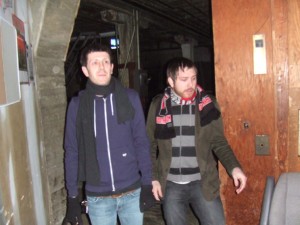


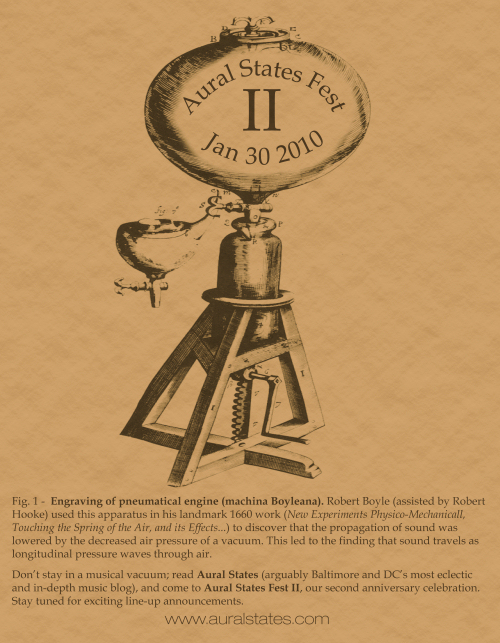
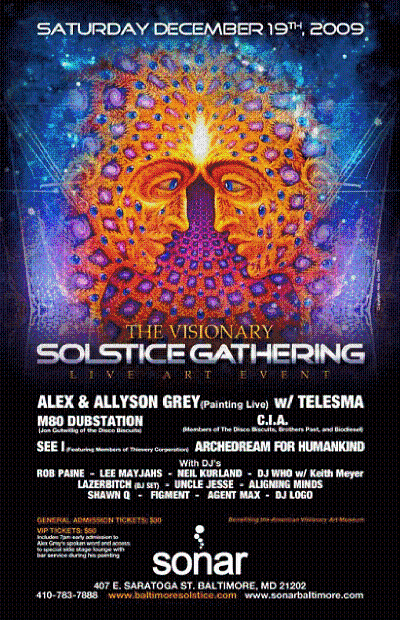









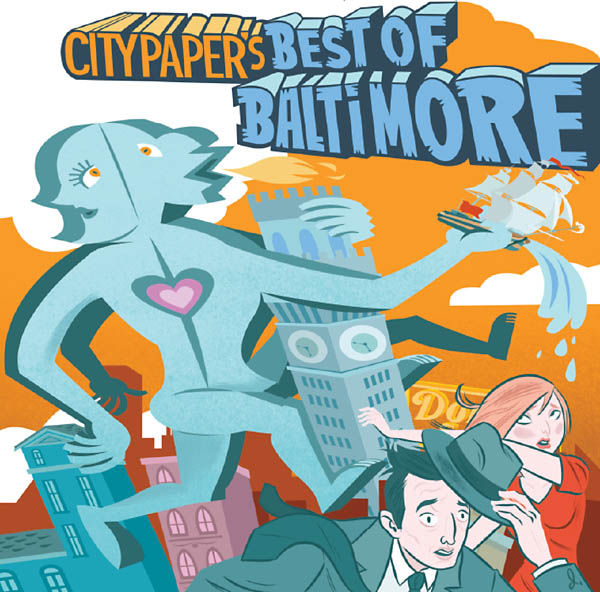
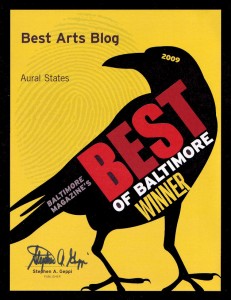


 Double Dagger: Masks EP
Double Dagger: Masks EP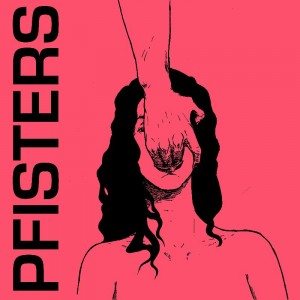 Pfisters: Narcicity
Pfisters: Narcicity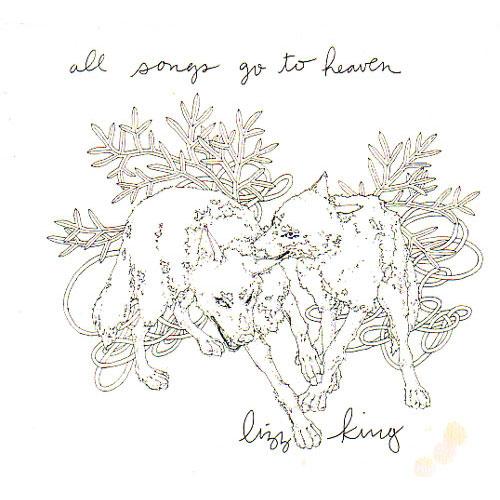 Lizz King: All Songs Go To Heaven
Lizz King: All Songs Go To Heaven Imperial China: Phosphenes
Imperial China: Phosphenes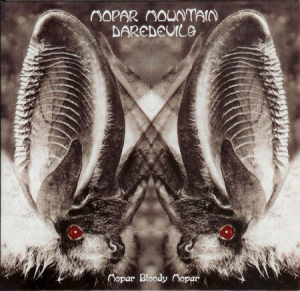 Mopar Mountain Daredevils: Mopar Bloody Mopar
Mopar Mountain Daredevils: Mopar Bloody Mopar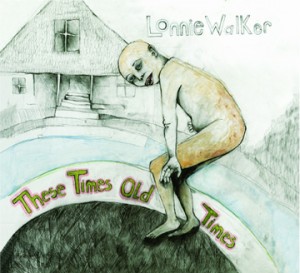 Lonnie Walker: These Times, Old Times
Lonnie Walker: These Times, Old Times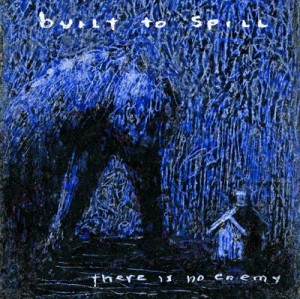 Built to Spill: There Is No Enemy
Built to Spill: There Is No Enemy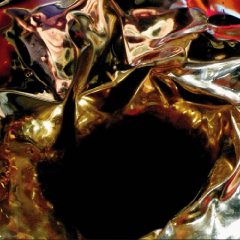 Hypnotic Brass Ensemble: Hypnotic Brass Ensemble
Hypnotic Brass Ensemble: Hypnotic Brass Ensemble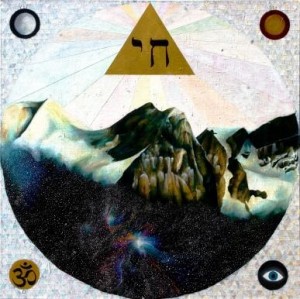 Secret Mountains: Kaddish EP
Secret Mountains: Kaddish EP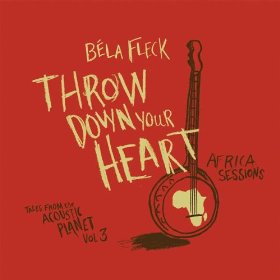 Bela Fleck: Throw Down Your Heart: Tales From the Acoustic Planet, Vol. 3 -Africa Sessions
Bela Fleck: Throw Down Your Heart: Tales From the Acoustic Planet, Vol. 3 -Africa Sessions Lands & Peoples: Lands & Peoples EP
Lands & Peoples: Lands & Peoples EP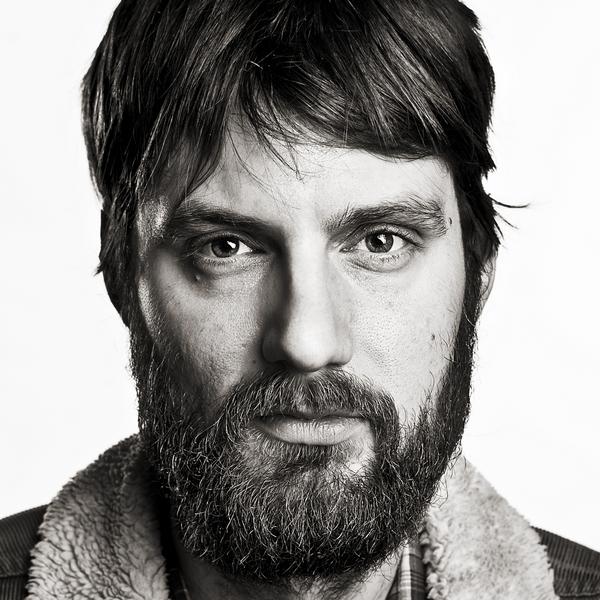 Caleb Stine: Eyes So Strong and Clean
Caleb Stine: Eyes So Strong and Clean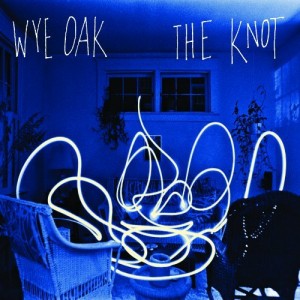 Wye Oak: The Knot
Wye Oak: The Knot Pontiak: Maker
Pontiak: Maker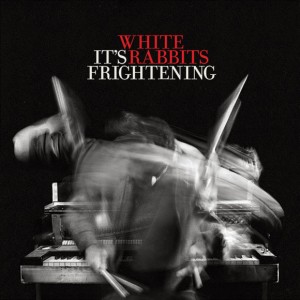 White Rabbits: It's Frightening
White Rabbits: It's Frightening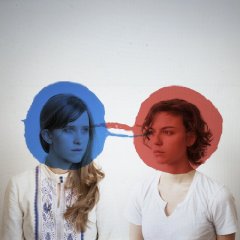 Dirty Projectors: Bitte Orca
Dirty Projectors: Bitte Orca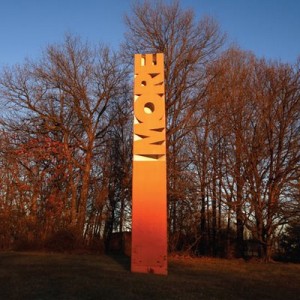 Double Dagger: More
Double Dagger: More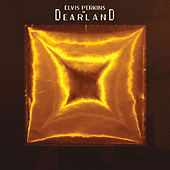 Elvis Perkins in Dearland: Elvis Perkins in Dearland
Elvis Perkins in Dearland: Elvis Perkins in Dearland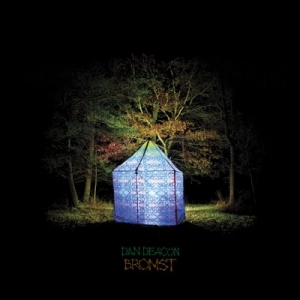 Dan Deacon: Bromst
Dan Deacon: Bromst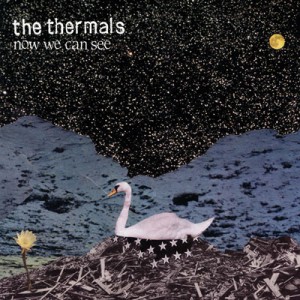 The Thermals: Now We Can See
The Thermals: Now We Can See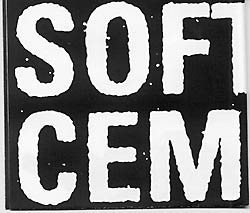 Soft Cement: Think About It EP
Soft Cement: Think About It EP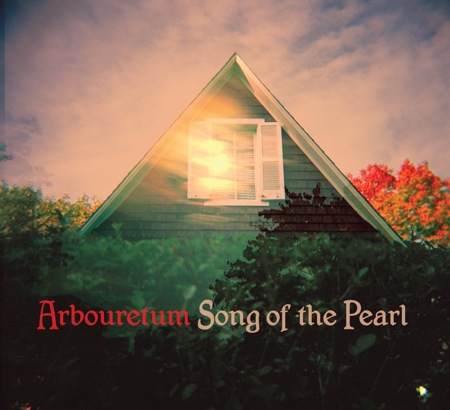 Arbouretum: Song of the Pearl
Arbouretum: Song of the Pearl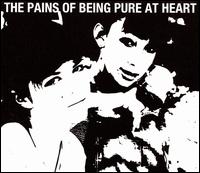 The Pains of Being Pure at Heart: The Pains of Being Pure at Heart
The Pains of Being Pure at Heart: The Pains of Being Pure at Heart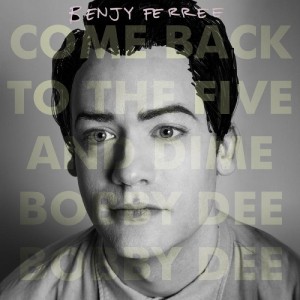 Benjy Ferree: Come Back to the Five and Dime, Bobby Dee Bobby Dee
Benjy Ferree: Come Back to the Five and Dime, Bobby Dee Bobby Dee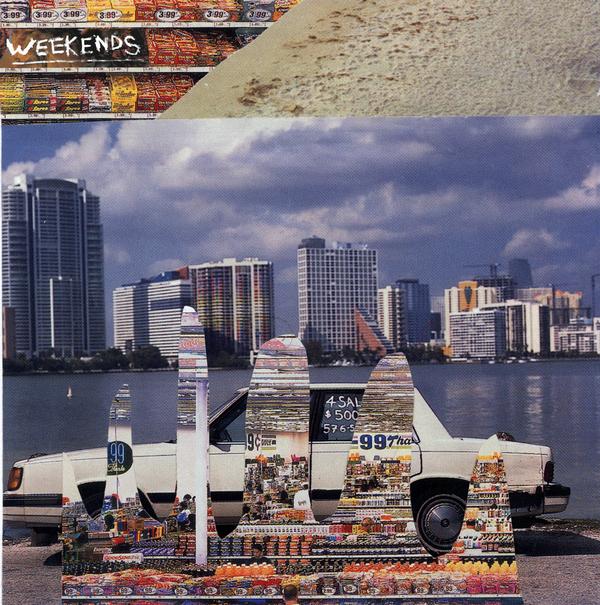 Weekends: Weekends
Weekends: Weekends Height With Friends: Baltimore Highlands 12" LP, Limited-Run Vinyl Only
Height With Friends: Baltimore Highlands 12" LP, Limited-Run Vinyl Only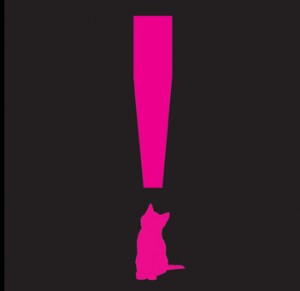 Caverns: Kittens! EP
Caverns: Kittens! EP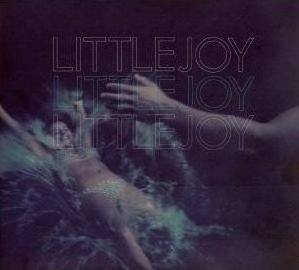 Little Joy: Little Joy
Little Joy: Little Joy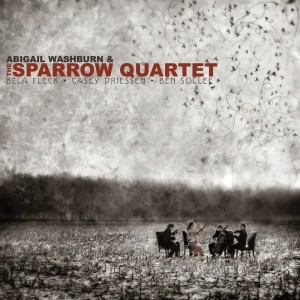 Abigail Washburn & the Sparrow Quartet:Abigail Washburn & the Sparrow Quartet
Abigail Washburn & the Sparrow Quartet:Abigail Washburn & the Sparrow Quartet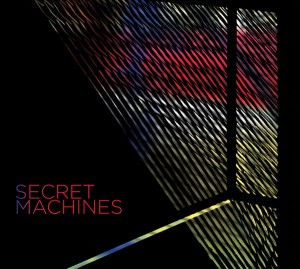 The Secret Machines: Secret Machines
The Secret Machines: Secret Machines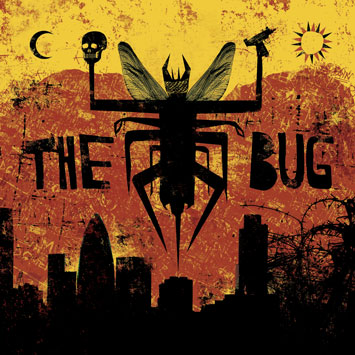 The Bug: LondonZoo
The Bug: LondonZoo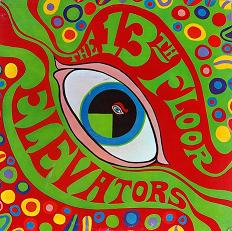 13th Floor Elevators: Psychedelic Sounds of the 13th Floor Elevators (Vinyl Mono LP only)
13th Floor Elevators: Psychedelic Sounds of the 13th Floor Elevators (Vinyl Mono LP only)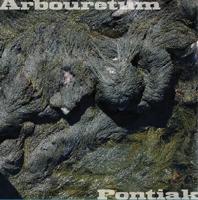 Arbouretum/Pontiak: Kale (Vinyl LP only)
Arbouretum/Pontiak: Kale (Vinyl LP only) Small Sur: We Live in Houses Made of Wood
Small Sur: We Live in Houses Made of Wood AbeVigoda: Skeleton
AbeVigoda: Skeleton ImperialChina: Methods: EP
ImperialChina: Methods: EP